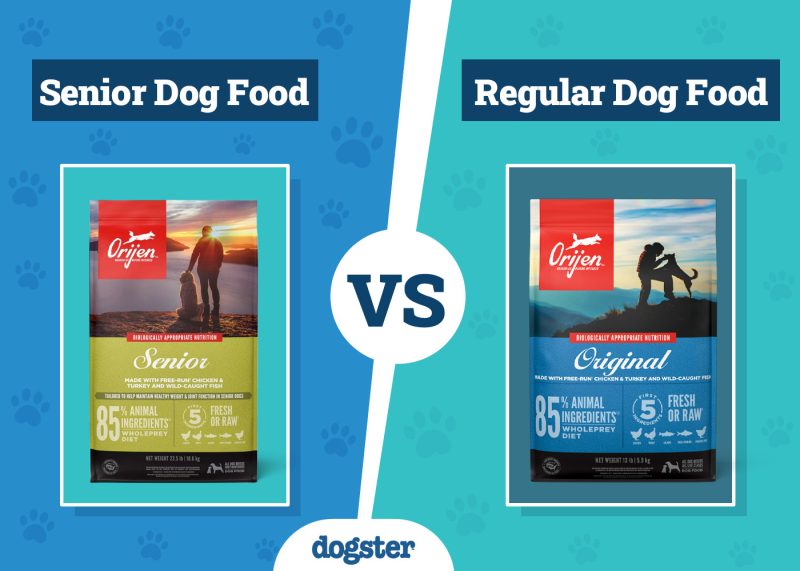In this article
View 4 More +All of us want a healthy digestive tract, both for ourselves and our dogs. Nowadays, what we consume and what our dogs consume is an important part of our overall health. Prebiotics are one way that you may be able to help support your dog’s healthy gut and immune system. While not all dogs need them as additives, your veterinarian may recommend prebiotics for your dog if they have chronic GI upset, a “sensitive” stomach, chronic bloating, or any disease that will decrease their immune system. Prebiotics are easy to give with very few side effects.

What Are Prebiotics?
While many people have heard of the term probiotics, prebiotics are different. Within the microbiome of your dog’s gastrointestinal tract are billions of bacteria and other microorganisms. This microbiome is important in your dog’s immune system, helps with healthy and normal digestion, and helps the GI tract feed other organs of the body. Probiotics refer to the good bacteria that are within your dog’s intestinal tract. Prebiotics are the food for these bacteria and other microorganisms.
Prebiotics and probiotics work together to help balance the dog’s natural gut microbiome. A healthy gut is essential for overall health, good immunity, growth, and healthy digestion.

How Are Prebiotics Given?
Prebiotics are always given orally. This makes sense when you understand that they feed and support the microorganisms of the gut/GI tract. There are multiple options for feeding them to your dog. First, some commercially made dog foods actually contain prebiotic and probiotic ingredients. Many natural food ingredients contain prebiotic fiber, such as pumpkins, lentils, beans, peas, oats, and sweet potatoes.
Supplements can also be given to your dog daily. There are a few great options out there, but always check with your veterinarian about what your dog needs. Some supplements come in capsule form that you feed to your dog; others come in powder form that you mix into food. There is also at least one brand that is a paste. Be aware that not all supplements are created equal, and some only contain probiotics, while others contain both pre and probiotics.
What Happens if You Miss a Dose?
In most cases, very little will happen if a dose is missed. If you’re giving prebiotics to support an otherwise healthy dog, you will likely not notice if you miss one or even a few doses of their prebiotic. However, if your dog has chronic bloating, diarrhea, constipation, or an upset stomach, you may notice these signs return if they are normally well controlled with a prebiotic.

Potential Side Effects of Prebiotics
Like missing a dose, there are few side effects of your dog taking prebiotics. In some cases, dogs may develop soft stools, diarrhea, or increased bloating. However, most dogs will only benefit from prebiotics if they are given appropriately.
It’s important to remember that there are very few tested and veterinary-recommended prebiotic products. Even if you find a product online that claims to be “veterinary-trusted” or “veterinary-recommended,” it may all be marketing hype. Always check if there are published studies and test results for the health claims, and ask your veterinarian if the product is legit. If you give an unknown product you purchased from the pet store or ordered online, there’s no knowing which side effects your dog may have.

Frequently Asked Questions
What About Dog Food Containing Prebiotics?
Commercially made dog food containing prebiotics or formulated to support a healthy gut is an excellent option for many dogs. These foods may help dogs with chronic bloating, soft stools, and dietary sensitivity. Always speak to your veterinarian about whether this is a good option for your dog.
If you need to speak with a vet but can't get to one, head over to PangoVet. It's our online service where you can talk to a vet online and get the advice you need for your dog — all at an affordable price!
Does My Dog Need Prebiotics Supplemented?
Not all dogs require a prebiotic supplement. If your dog is otherwise healthy and has no acute or chronic GI issues, then they likely won’t require additional supplementation. However, if your dog suffers from chronic GI issues, has any disease that decreases its immune response, or is on long-term antibiotics, adding a prebiotic may benefit them.

Conclusion
Prebiotics are essential for a balanced and healthy gut microbiome. In some dogs, prebiotics may be needed as supplementation to maintain and balance the digestive tract. These products are always given orally as food, powders, capsules, or even pastes. Some products contain both pre and probiotics, while others only contain one or the other.
An otherwise healthy dog may benefit from prebiotics but may not necessarily need them supplemented. However, a chronically ill dog or one who has constant GI issues may require them to be added to the food. There is very little involved in administering, with no major side effects or consequences of missing a dose, but it’s best to speak to your veterinarian before purchasing prebiotics for your pup.
Featured Image Credit: AYO Production, Shutterstock























2 Responses
where can I purchase only prebiotics for my dog that's is what he needs.. I'm unable to find prebiotics without probiotics